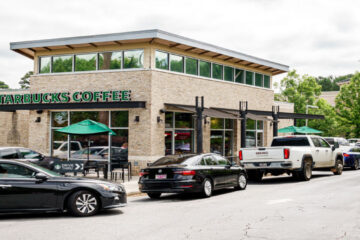Just as Texas Attorney General Ken Paxton accused travel company Booking Holdings BKNG of “deceiving” customers by omitting hidden fees from the total hotel price in August 2022, two U.S. senators are now coming after what they call the “unfair and deceptive practices in airlines’ frequent flyer and loyalty programs.”
Despite being from opposite political parties, U.S. Senate Majority Whip Dick Durbin (D-Ill.) and Senator Roger Marshall (R-Kansas) have come together to ask the Department of Transportation (DOT) and the Consumer Financial Protection Bureau (CFPB) for more information about frequent flyer and loyalty programs proposed to customers by the country’s major airlines.
Related: Airlines are cracking down on lounge crowding in a way you won’t like
“There are troubling reports that airlines are engaged in unfair, abusive, and deceptive practices with respect to these loyalty programs,” Durbin and Marshall write in the letter to the government agencies. “For example, reports have suggested that airlines are changing point systems in ways that are unfair to consumers, including by devaluing points, meaning it takes more points than initially marketed to achieve the promised rewards.”
Sen. Richard Durbin, D-Ill., arrives for the Senate Appropriations Committee hearing on the national security supplemental request on Tuesday, October 31, 2023.
Letter to DOT and CFPB raises serious concerns
Without naming any individual airlines, the senators raised concerns of behaviors that include luring in customers with deals and reward promises and then changing up the conditions at will as well as encouraging customers to spend more only to make it harder to get the promised rewards.
More Travel:
A new travel term is taking over the internet (and reaching airlines and hotels)The 10 best airline stocks to buy nowAirlines see a new kind of traveler at the front of the plane
“These programs incentivize consumers to purchase goods and services, obtain credit cards, and spend on those credit cards in exchange for promised rewards — all while retaining the power to strip consumers of those rewards at any moment,” Durbin and Marshall write in the letter addressed to DOT and CFBP chairs Pete Buttigieg and Rohit Chopra.
All this comes at a time of general upheaval in the world of airline loyalty programs. In September 2023, Delta Air Lines DAL tried to cut costs by switching up its loyalty program in a way that would have capped airport lounge visits to 10 a year and required travelers to spend more to earn the status that would get access in the first place.
Amid the outcry from passengers who felt like they had been giving the airline their loyalty only to have the rug swept out from under them, JetBlue Airways JBLU, Alaska Airlines ALK and Southwest Airlines LUV all swooped in with offers to match or even outdoor the status frequent flyers had with Delta.
This is the mess that’s been going on with airline loyalty programs in recent months
At a Rotary Club of Atlanta Meeting on Sept. 25, Delta CEO Ed Bastian said that the airline “probably went too far” in pushing forth the changes. A month later, Delta committed to bringing down the amounts needed to reach the different status tiers but despite marketing how it is “lowering” how much customers will need to spend is only bringing them down to a lower raised amount. Despite promising to increase lounge visit numbers, Delta is also staying firm in the decision to introduce them at all.
Durbin and Marshall’s letter also draws attention to how the “cost of directly purchasing points can sometimes be three times the value of the points at redemption.”
“This disparity between the value of points at purchase and at redemption can be even more extreme, depending on when, how many, and even where on the website the points are purchased,” the letter reads.


